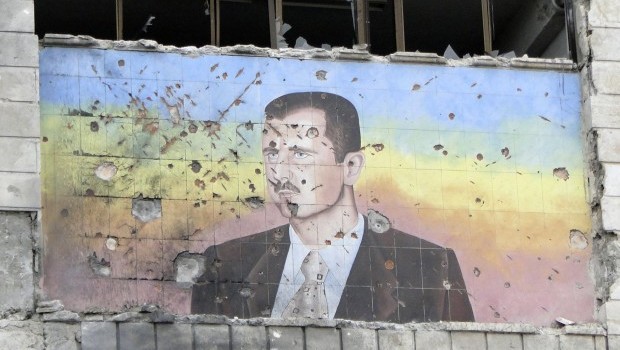Last summer, US President Barack Obama warned that if it is confirmed that Syria is transferring or using chemical weapons, he would change his position regarding military intervention in Syria.
A few months later, the US secretary of state announced that the Syrian regime did in fact transfer chemical weapons for military use. However, White House experts decided that the chemical weapons were transported to Hezbollah, and so no action was taken.
For almost a year now, there have been leaked reports that confirm Assad’s use of chemical weapons. It was first claimed that he had used chlorine gas. The response was that this is a gas that has been around since World War I and only causes asphyxiation. Nerve agents, on the other hand, are completely different. It was later claimed, however, that Assad’s forced had used the fatal mustard gas. Despite this, no one did anything.
During this month’s conference of security research institutes, an Israeli official announced that the Syrian regime used sarin, also a nerve agent. Neither the Americans, nor anybody else, sent warplanes to Syria.
An Israeli commentator at the Haaretz daily newspaper warned that Gulf countries are observing how the international community is dealing with Assad, and it is clear that the Syrian president was testing how far he could “push the envelope.” In the process, it was realized that no one wants to end the slaughter. Thus, the situation is similar to that of a factory carrying out different experiments—not experiments related to weapons of mass destruction, but experiments on the international community’s reaction. The result is that everyone is aware of what Assad is doing and no one intends to do anything.
Initially, Assad realized that no one in the world is concerned about him suffocating civilians with primitive chlorine gas. So, he moved on to the use of mustard gas. After it seemed that no one was concerned about that either, he graduated to sarin gas. It is important to mention that a one-milligram drop of sarin can kill an adult and one fourth of a milligram is enough to kill a child. Assad possesses tons of sarin.
Why is there such horrific indifference? Is it because Syria is a petroleum-producing country? Maybe it is because Assad’s fight is with Al-Qaeda?
How can the world claim that fighting terrorism and criminal regimes is an international duty?
How can the US State Department justify its statements condemning violations of human rights in the region while overlooking the deaths of innocents as a result of chemical weapons?
The question that everyone must now consider is: How can we prevent regional governments from purchasing chemical weapons—the cheapest, most effective instrument of violence?
When Saddam was expelled from Kuwait as a result of collective international military efforts, this was a message to everyone, not just Saddam. The message was that thuggery and threatening other countries comes at a high price.
When Afghanistan was shelled and Bin Laden and his Taliban allies fled, it was considered a message to terrorist figures across the world that terrorists will be pursued no matter where they seek refuge.
It is apparent that everyone learned the lesson. We have had no major wars or invasions since then. Most terrorist groups went into hiding and no government has dared negotiate with such groups publicly.
Assad’s regime has committed horrific massacres against the Syrian people for two years, using weapons that no one ever imagined could be used to target civilians: warplanes, tanks, missiles and chemical weapons. This sends a powerful message: stock up on all types of weapons and one day you will be able to use them.
It is for this reason that few would be surprised if Assad decides to save time and end the uprising by deploying chemical weapons on a mass scale. Assad now knows that no foreign military force will head to Syria to deter him.
